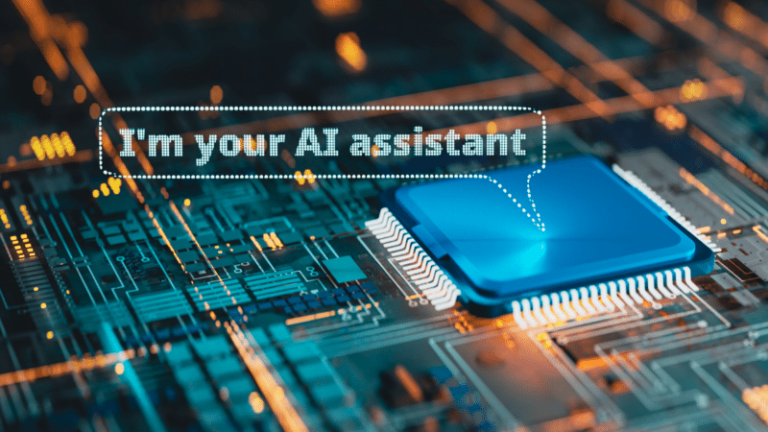Insights from AI’s 2024 Surge: A Strategic Approach to Marketing in 2025
As we approach the end of 2024, one theme stands out that has significantly influenced marketing and technology this year: artificial intelligence. From remarkable breakthroughs in generative technologies to ambitious declarations about entering the “agentic era,” the year has been filled with transformative promises.
However, amidst all this enthusiasm, a considerable gap exists between these ambitious dreams and the everyday realities faced by most organizations. Throughout the year, I have engaged in teaching, consulting, and participating in the Marketing Accountability Council (MAC), witnessing the intersection of high aspirations and practical limitations. I have observed firsthand how businesses, marketers, and students are navigating the complexities of rapidly changing technology and the urgent need for adaptation.
From these experiences, one clear insight emerges: the progress we see in 2025 will not stem from monumental shifts but rather from deliberate, step-by-step advancements that are firmly rooted in current realities.
2024: The Era of AI Hype and Optimism
It may not be an overstatement to claim that 2024 will be regarded as a pivotal year for AI. This year has ushered in remarkable innovations:
- Breakthroughs in Generative AI: Platforms like ChatGPT, Google’s Gemini 2.0, and MidJourney have evolved, suggesting deeper integration into corporate workflows.
- The Advent of the Agentic Era: Visionaries and industry leaders have illustrated a future where AI systems not only react to commands but can predict needs and operate independently.
- Enhanced Personalization and Automation: Marketing executives celebrated AI’s potential to transform the way brands engage with their audiences, fostering unique experiences at scale.
These advancements have indeed been groundbreaking. Yet, in discussions with businesses and students alike, a significant disconnect becomes apparent. While AI has the capability to revolutionize sectors, most organizations are ill-equipped to harness its full potential.
Explore more: Welcome to MarTechBot
Shifting from Browsing to AI-Driven Information Retrieval
Even more transformative developments are on the horizon. A recent forecast by futurist Jeremiah Owyang intrigued me: in the coming two years, AI agents are set to alter the way we obtain information online. Instead of sifting through websites, these agents will:
- Thoroughly search the web.
- Locate exactly what is needed.
- Execute tasks on our behalf, all through a single, user-friendly platform.
This observation resonates with what I’ve noted in classroom discussions. When I inquired about their online habits, most students admitted to relying overly on services like Google and Amazon. Their preference for efficient, streamlined experiences indicates that the transition to AI-enhanced information retrieval is already in motion.
For AI agents to thrive, we must ensure that websites prioritize metadata and structures compatible with these tools. While this vision is exhilarating, it highlights the disconnect between the future we aspire to and the existing challenges many organizations encounter.
Identifying the Gaps
From my perspective, the obstacles to embracing AI and similar cutting-edge technologies are primarily cultural and strategic, rather than solely technical.
1. Technological Foundations
Numerous organizations lack the essential systems to implement AI tools effectively. Outdated technology frameworks, fragmented data, and poor interoperability between platforms make even straightforward AI applications feel overwhelming.
For instance, a student-led audit of Zara’s online presence unveiled fundamental issues with navigation and search capabilities. Despite its leadership in fast fashion, Zara struggles to offer a fluid digital experience, revealing that it must first address foundational shortcomings before deploying sophisticated AI solutions.
2. Resistance to Cultural Change
Integrating AI involves more than just technical hurdles; it also encompasses cultural challenges. Major changes often require consensus across different departments, yet many organizations remain departmentalized, risk-averse, and slow to respond. Teams may worry that automation will jeopardize jobs, while executives may hesitate to commit resources without guarantees of return on investment.
3. Consumer Acceptance
While a segment of the consumer base welcomes AI, others express doubts or discomfort. Concerns regarding privacy, skepticism towards algorithmic decisions, and the desire for human interaction pose significant obstacles for brands attempting to incorporate AI into their customer service.
4. Immediate Focus
Economic constraints have pushed many companies into a defensive stance. The emphasis on short-term outcomes—like reducing expenses or boosting immediate sales—often detracts from long-term strategic ventures such as AI implementation.
Insights from 2024: Connecting the Dots
If nothing else, 2024 has shown us that true solutions stem not from disruptive efforts, but from iterative processes.
Case Study: Iterative Innovation
Consider Zara again. My students developed an AI assistant, named Zoey, to help the brand tackle its digital challenges in manageable steps:
- Stage 1: Launch a basic AI-driven search function to enhance navigation and minimize user frustration.
- Stage 2: Deploy AI systems that analyze user behavior and purchasing habits to provide tailored suggestions.
- Stage 3: Transform Zoey into a virtual style consultant, seamlessly integrated into the shopping journey.
This phased strategy reflects the truth that substantial transformations seldom succeed without gradual development. Starting small and expanding incrementally allows businesses to test, assess, and refine their approaches before scaling them further.
Cultivating Empathy
A key theme emerging this year has been the significance of empathy—not only towards consumers but also within organizations. Companies are not resistant to change out of a lack of ambition; rather, they are limited by operational realities. Solutions that recognize these challenges have a far greater likelihood of success.
For example, another group of students proposed utilizing AI to help Zara align its sustainability messaging with consumer values. Their plan? Start with one product line, leveraging AI to monitor and communicate its environmental impact before extending the initiative across the entire brand. By acknowledging the company’s constraints while addressing customer priorities, this solution demonstrated the potency of empathy-driven design.
Anticipated Themes for 2025
1. Empathy as a Business Essential
Empathy should not merely be a buzzword—it is a vital component of business strategy. Organizations that genuinely understand their customers’ needs and concerns will cultivate stronger bonds and enhance trust.
2. Prioritizing Incremental Change Over Revolutionary Shifts
The narrative of instant transformation needs a rethink. Whether concerning AI adoption, website enhancements, or personalization strategies, the focus should shift to gradual advancements. Small but significant improvements create momentum and lower the chance of failure.
3. Upholding Trust and Transparency
As AI becomes increasingly woven into marketing, trust will emerge as the key currency of 2025. Companies must be transparent about the workings of these systems and the data they utilize. Clear communication, solid privacy policies, and ethical practices will be essential.
4. Fostering Community and Connection
The transition from transactional marketing to community building is here to stay. Consumers seek brands that create spaces for genuine engagement, as opposed to mere one-way communication. Companies that cultivate meaningful relationships will flourish in this new marketing landscape.
Explore more: Marketers must adapt to a changing world
Looking Towards the Future
As we enter 2025, I remain optimistic about the future for marketers, organizations, students, and the industry as a whole. For companies, I hope they conduct candid assessments of their capabilities, emphasizing the resolution of core issues like usability, personalization, and transparency instead of pursuing temporary trends.
For marketers, I hope we continue to embrace the significant responsibilities of our roles—shaping perceptions, cultivating trust, and providing value—approaching our work with intention and integrity. For students and emerging leaders, I hope they uphold the lessons of 2024: balancing ambitious goals with practical strategies, prioritizing empathy, and welcoming change.
For my part, I will strive to continue bridging the divide between vision and implementation, engaging in meaningful dialogue and collaborative solutions through my teaching, consulting, and ongoing work with the Marketing Accountability Council (MAC). This organization is dedicated to promoting transparency, advocacy, and ethical practices within marketing, and my involvement reaffirms the necessity of aligning ambitious pursuits with responsible principles. Together, we can make 2025 a year where marketing not only advances but genuinely serves individuals and communities with integrity.
Progressing Ahead
The events of 2024 have shown us that although technology evolves swiftly, the enduring elements of marketing remain anchored in human relationships—understanding needs, nurturing trust, and delivering real value.
The route to success in 2025 will not hinge on chasing the latest trends; instead, it will rest on what truly matters. Progress will emerge not from grand proclamations but from steady, intentional efforts.
Here’s to a 2025 defined by ongoing advancement, connection, and meaningful transformation.
Email:
See terms.
OptiPrime – Global leading total performance marketing “mate” to drive businesses growth effectively. Elevate your business with our tailored digital marketing services. We blend innovative strategies and cutting-edge technology to target your audience effectively and drive impactful results. Our data-driven approach optimizes campaigns for maximum ROI.
Spanning across continents, OptiPrime’s footprint extends from the historic streets of Quebec, Canada to the dynamic heartbeat of Melbourne, Australia; from the innovative spirit of Aarhus, Denmark to the pulsating energy of Ho Chi Minh City, Vietnam. Whether boosting brand awareness or increasing sales, we’re here to guide your digital success. Begin your journey to new heights with us!






